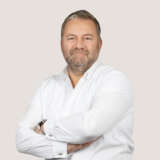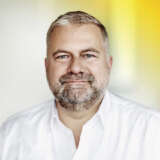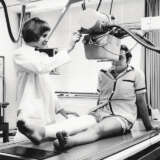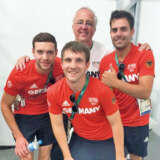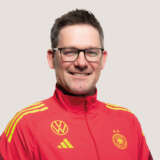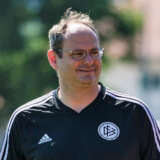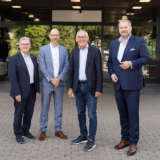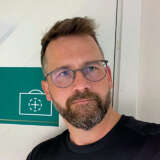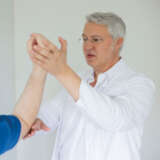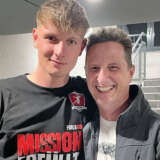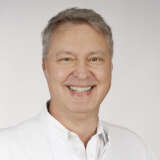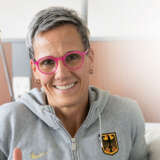Dirk Burghaus
Chairman of the Board Sportklinik Hellersen
Sportklinik Hellersen:
A strong partner in sports
Where athletic excellence meets decades of experience
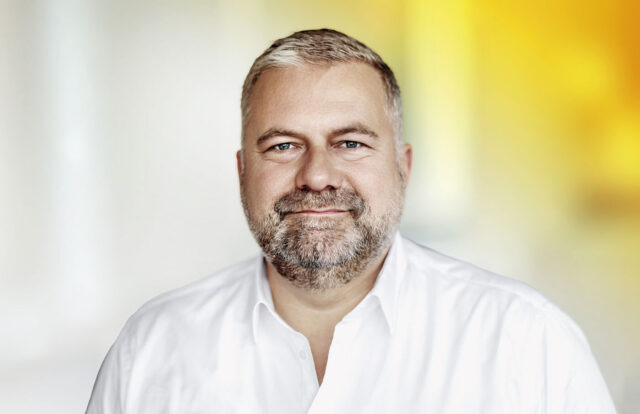
Photo: Hanna Witte
Have article read aloud
For almost 80 years, the Sportklinik Hellersen has been synonymous with top-quality medical care in sports. Originally founded to help injured athletes, today it is much more than a clinic for acute injuries. Prevention, sports medicine examinations, and individualized care form the foundation that both recreational and elite athletes rely on. In this interview, Dirk Burghaus, CEO of the Sportklinik Hellersen, explains why prevention plays a central role in the Olympic bid, how important the work of team doctors is, and how the specialist clinic supports athletes and non-athletes into old age.
Photo: freepik
Mr. Burghaus, what influence do the Olympic Games and elite sports have on the health of society?
Dirk Burghaus: Top-level sport inspires people far beyond the stadium. The Olympic Games impressively demonstrate what can be achieved with discipline, training, and a healthy lifestyle. These role models act as a driving force for society: they motivate people to exercise, be active, and take responsibility for their health. Prevention through sport is crucial: regular exercise helps prevent common diseases such as diabetes, obesity, and cardiovascular disease. This not only benefits individuals, but also reduces the burden on the healthcare system. In my view, promoting exercise is not optional, but a social obligation – and the Olympics provide the strongest motivation for this.
In his interview, Michael Scharf, Director of Competitive Sports at LSB NRW, emphasized that sport is primarily a means of prevention and will become even more important in the future. How important is prevention for the Sportklinik Hellersen?
Dirk Burghaus: Prevention has always been a key issue for us. When we were founded in 1946, our aim was to provide injured athletes with care that they could not receive elsewhere. Today, our mission is even more comprehensive: we don't want to treat athletes only after they have suffered an injury, but rather support them in such a way that injuries are prevented as far as possible. An important step was the establishment of the Sports Medicine Department under the direction of Dr. Ernst Jakob. Under his leadership, it developed into a recognized center for competitive and recreational athletes and received the status of a DOSB and LSB-NRW accredited examination center. Today, Dr. Ulrich Schneider continues to lead the department and has focused sports medicine on prevention and performance diagnostics. This development continues to form the basis for regular check-ups of national and state squad athletes. This is particularly important in view of the Olympic Games, as such examinations ensure that athletes are not only fit and healthy, but also resilient.
However, we do not only use this expertise for top athletes. Regular exercise and preventive examinations also protect the general population from typical lifestyle diseases such as diabetes, obesity, and cardiovascular disease.
The Sportklinik Hellersen is our little Olympics — here, cutting-edge medicine benefits the whole of society.
Dirk Burghaus
Chairman of the Board Sportklinik Hellersen
Photo: Hanna Witte
Several doctors at the Sportklinik Hellersen are active as team doctors and accompany athletes both internationally and regionally. How important is this activity for the Sportklinik Hellersen?
Dirk Burghaus: It impressively demonstrates how closely our medical professionals are involved in sports. Whether in elite or popular sports, the focus is always on providing athletes with the best possible care and ensuring their health. This is not only about acute care, but also about the early detection of overexertion and incorrect strain. Targeted measures such as training adjustments, physiotherapy support, or stabilization exercises can often prevent injuries before they even occur. This is crucial for securing careers and achieving athletic goals. This close support is particularly valuable for young athletes because it lays the foundation for healthy development. For us, this is a visible expression of our responsibility: we promote athletic activity at all levels, support athletes from the grassroots to international competitions, and help them to enjoy their sport safely.
The experience our doctors gain in high-performance sports flows directly into daily care at the clinic – similar to how innovations from Formula 1 are later used in production vehicles. Ultimately, this benefits not only professionals, but all other patients as well.
What special significance do the Olympic Games have for the Sportklinik Hellersen?
Dirk Burghaus: The Olympics are the world's biggest sporting event and stand for fairness, performance, and community. These are values that we at Sportklinik Hellersen also uphold. Many of our doctors also have international experience, whether from World or European Championships or from various Olympic Games. This knowledge enriches our daily work and benefits not only professionals but also recreational athletes. Ultimately, our patients are the athletes – whether they are top athletes or someone who has had a knee replacement or spinal surgery: everyone is fighting for their comeback. We accompany them on this journey like an Olympic team until they achieve their personal victory.
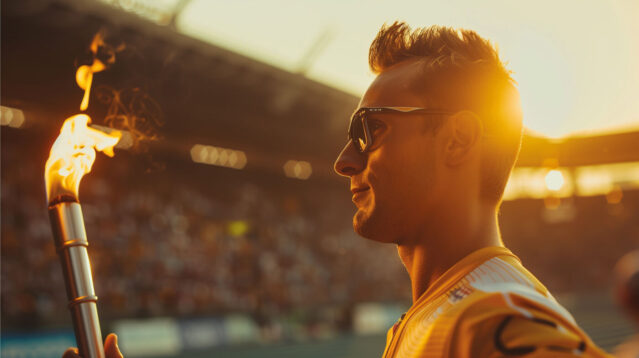
Photo: freepik
What does the Rhine-Ruhr region's Olympic bid mean for the Sportklinik Hellersen, and how can you provide concrete support?
Dirk Burghaus: For us, it is a great opportunity to further highlight our special role in competitive and popular sports. We have been closely associated with sports for almost 80 years, supporting national teams, working as a DOSB-accredited examination center, and partnering with the Landessportbund NRW. This makes the Sportklinik Hellersen an important component of the Olympic concept. At the same time, the Olympics demonstrate that modern sports medicine benefits not only top athletes, but society as a whole.
When people think of the Sportklinik Hellersen, many first think of professional athletes. What role does supporting people who want to remain physically active in their everyday lives or in old age play for you?
Dirk Burghaus: Our goal is to help people stay active at every stage of life. This applies to young athletes as well as athletes who have already retired from their careers, or patients who want to regain their mobility and quality of life after surgery. One impressive example is a 73-year-old patient who, despite having two artificial hips and an artificial knee joint, covers 50 kilometers every day on his bike or in his running shoes. Stories like this show that sport is possible into old age if the medical care is right and the right support is provided. And that is precisely our goal: not only to enable top performances in elite sport, but also to promote exercise, health, and joie de vivre throughout life.



